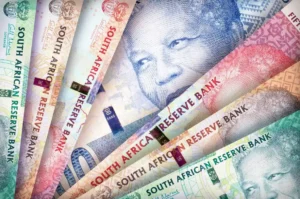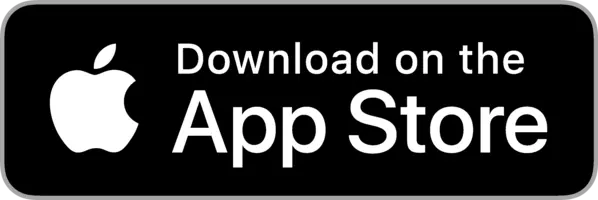Ghana’s lively culture, stunning coastlines, and deep historical roots make it a must-visit destination, but managing money wisely is key to a stress-free trip. Whether you’re exploring the bustling markets of Accra, visiting historic castles along the Cape Coast, or enjoying local dishes like jollof rice, this guide covers everything you need to know – what currency to bring, the best ways to get money and currency in Ghana (Ghanaian Cedi (GHS)), cash safety tips, and essential dos and don’ts. With these insights, you’ll avoid hidden fees and fully embrace Ghana’s warm hospitality and vibrant atmosphere.
How to pay in Ghana – cash or card?
In Ghana, while cash remains a prevalent method of payment, there has been a significant shift towards digital transactions, particularly through mobile money services.
You can use cash for:
Public Transportation: Buses, minibuses, and taxis primarily operate on cash payments.
Local Markets and Street Vendors: Transactions at traditional markets and street stalls are predominantly cash-based.
Small Businesses: Many small or family-run shops and eateries prefer cash transactions.
Tips and Gratuities: It’s customary to tip in cash for services such as dining, tour guides, and hotel staff.
Rural Areas: In less urbanized regions, electronic payment facilities may be limited, making cash essential.
You can use card for:
Hotels: Major hotels, especially in urban and tourist areas, accept credit and debit cards.
Restaurants and Cafés: Many dining establishments, particularly in cities, facilitate card payments.
Retail Stores: Shopping malls, branded stores, and supermarkets in larger cities commonly accept cards.
Online Services: E-commerce platforms, online bookings for flights, accommodations, and other services typically require card payments.
Fuel Stations: While many accept cards, it’s advisable to confirm beforehand, as some may prefer cash.
What’s the best currency to take to Ghana
Ghanaian Cedi (GHS) is typically the best currency to take if you are traveling to Ghana. Paying or withdrawing money in the local currency comes with the least amount of fees, sometimes fee-free too.
While some businesses in major cities may accept US Dollars, this is not common practice, and the exchange rate may be poor. Therefore, it’s advisable to pay in GHS to avoid losing money.
Euros or Pounds are not widely accepted here.
Where to get currency in Ghana
There are 3 main ways to get cash in Ghana. They are:
ATMs, or
Currency exchange, or
Money transfer & local pick-up
Types of cards to swipe in Ghana
Establishments with POS machines readily accept Visa and Mastercards for swiping. You might also find some places that accept Amex and other cards, albeit less frequently.
Types of cards at ATMs in Ghana
If you’re withdrawing money in Ghana from an ATM, ATMs commonly accept Visa, Mastercard, Maestro, Plus, Cirrus cards. Some of them accept Union Pay cards. Others like JCB, Amex, Diners, Discover and Rupay cards are generally not accepted.
Should I exchange money before travelling to Ghana
Bringing a small amount of Ghanaian Cedi (GHS) before traveling can be useful for immediate expenses like taxis, tips, and small purchases. However, exchange rates outside Ghana are usually poor, and many foreign banks do not stock GHS, making it difficult to obtain in advance.
Withdrawing GHS from ATMs in Ghana is a convenient option, as ATMs are widely available in airports, cities, and tourist areas. Most ATMs accept Visa and Mastercard, but Cirrus, Plus, and Maestro cards may have limited acceptance. Check with your bank for international withdrawal fees.
It’s best to exchange currency in Ghana at banks or licensed exchange bureaus, which offer better rates than airports or hotels. If you need local cash upon arrival, exchange only a small amount at the airport.
Carrying a mix of cash and cards is advisable. If bringing USD, EUR, or GBP, they can be exchanged easily in Ghana. USD notes must be in good condition and preferably printed after 2009, as older or damaged notes may be rejected. Paying in GHS ensures the best value, as foreign currency is not widely accepted for everyday transactions.
Where to withdraw money in Ghana
You can withdraw money in Mozambique at leading bank ATMs in the country. The best ATMs for foreigners to use in Ghana are those owned by popular banks such as:
Prudential,
UBA,
Zenith Bank,
Absa Bank,
NIB,
GT Bank, and
CBG.
There are other banks with ATMs that also accept international debit and credit cards.
Some international banks also have their ATMs in Ghana namely Standard Chartered.
There are no known Global ATM Alliance member banks or All Points network banks in Ghana.
Where to exchange currency in Ghana
Common places to exchange currency in Ghana are licenced exchange bureaus or banks.
Currency Exchange Offices: In Ghana, currency exchange offices are commonly referred to as Forex Bureaus. These are widely available in major cities, tourist areas, and shopping centers. Notable providers include 88 Forex Bureau, 108 Forex Bureau.
Banks: Major banks such as Standard Chartered Ghana, GCB Bank, and Ecobank Ghana offer currency exchange services. These banks have branches throughout cities, providing reliable services. Operating hours are typically from 8:30 AM to 4:00 PM on weekdays, with some branches open on Saturdays until noon.
You can find good currency exchanges using the ATM Fee Saver app – it will guide you to the nearest currency exchange on the map. The app helps you with forex places in 100+ countries, including Ghana.
Avoid Airport Exchanges and no-fee exchange offices: Currency exchange services at airports often have less favorable rates and higher fees. It’s generally better to exchange money in the city for better rates and lower charges.
Is carrying cash safe in Ghana
Carrying moderate or large amounts of money in Ghana is not safe. Petty crimes like pickpocketing, bag snatching, and occasional armed robbery occur, especially in busy markets, crowded areas, and public transportation. Tourists are often targeted near ATMs and in isolated areas. Card payments are widely accepted in cities, so carrying large amounts of cash is unnecessary.
To keep your cash safe:
Carry only what you need for the day.
Use a money belt or concealed pouch.
Avoid withdrawing large sums from ATMs in public areas.
Stay alert in crowded places and markets.
By taking these precautions, you can reduce the risk of theft while handling cash in Ghana.
Is it better to use debit or credit cards or pay by cash in Ghana
Use a card if it is fee-free i.e. your bank does not charge any fees to swipe the card, when the merchant / POS also does not impose any extra charge to use a card, you need to use the insurance of the card, don’t want to block cash of large purchases and card’s swipe fees are lower than withdrawal fees.
Pay by cash by withdrawing cash from ATM or exchanging currency where – fees on ATM withdrawals are lesser than fees on swiping cards, you don’t want to leave any digital footprint of your expenses, it is convenient and easier to conduct transactions.











